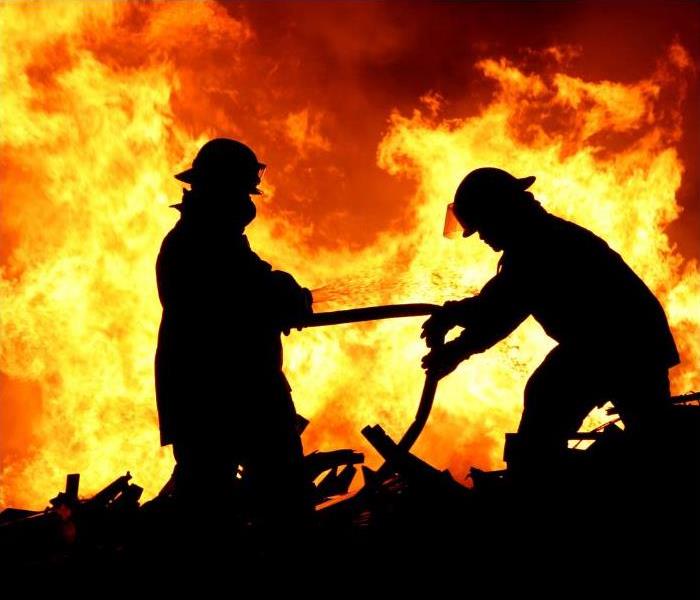The Five Classes of Fire
2/11/2021 (Permalink)
A fire in any sense of the word can be disastrous. Whether it happens at the home, in the business, or out in a forest, there’s no doubt that they need to be put out as soon as possible. But what most don’t realize is that not all fires are able to be put out by the same method. According to the Strike First Corporation of America, there are five different classifications of fire;
- Class A fires are the most common accidental fires. They start typically when a combustible material, such as wood or fabric, accidentally catches on fire. These are the fires that should be put out with water.
- Class B fires happen when a liquid such as gasoline or oil is lit on fire. When facing this type of fire, the most efficient way to put it out is to cut off its oxygen supply. These fires must be smothered in order to put out the flames.
- Class C fires are commonly known as electrical fires. As the name suggests, they happen as a result of electrical surges, such as from power cords or motors. These types of fires will extinguish once the power to the electrical object has been cut off.
- Class D fires occur when a metal such as aluminum or titanium catches on fire. Trying to put out these types of fires with water will not work and could even increase the flames. To put out the flames, a dry powder should be used to smother the flames.
- Class K fires are more commonly known as cooking fires. They most commonly appear in kitchens when the oils used in cooking, such as grease or animal fat, catch on fire. In these cases, turning off the heat source and smothering the flames is the best course of action.
It is important to know about the different fire types so if confronted with one, one can respond quickly and efficiently. The best thing you can do to protect your home or business is to know which class or classes will be most likely to happen and have the proper extinguishing agents are available. That way the damage can be minimized if a fire ever breaks out.
Source: www.strikefirstusa.com
As always, if disaster strikes, SERVPRO of Springfield and SERVPRO of Morgan, Cass, Macoupin & Montgomery Counties are always here for you. We can be reached 24/7 at 217-528-7775.





 24/7 Emergency Service
24/7 Emergency Service